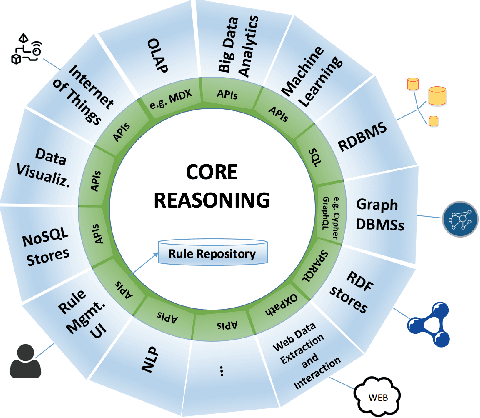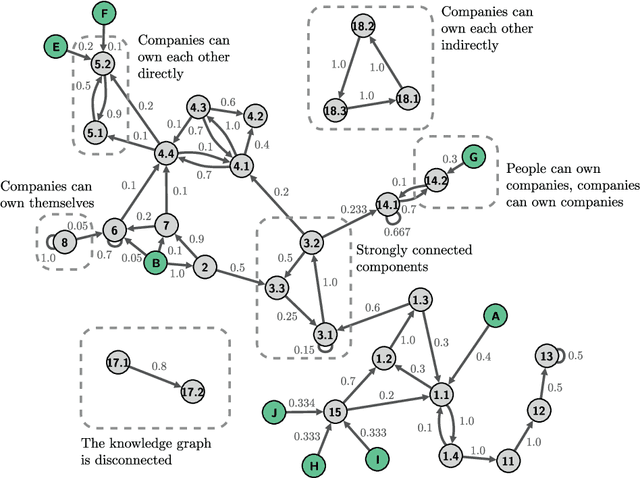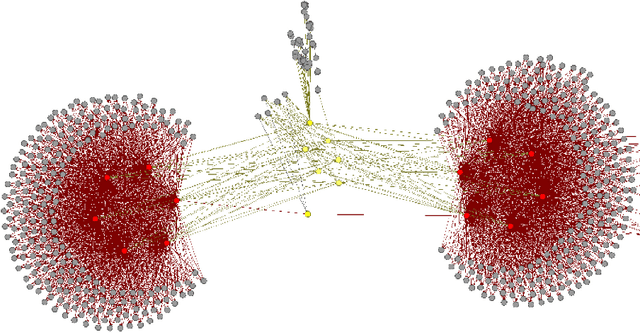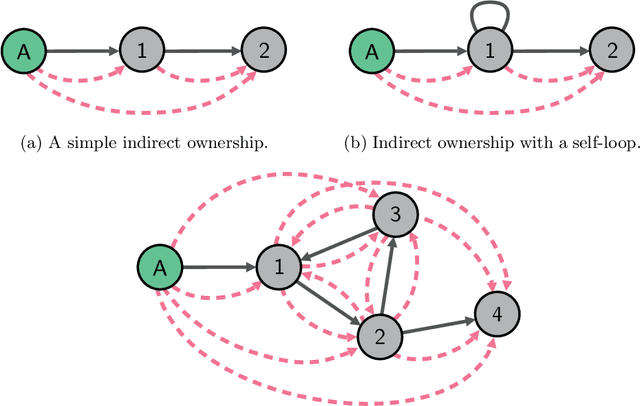Andrea Gentili
Fine-tuning Large Enterprise Language Models via Ontological Reasoning
Jun 19, 2023


Abstract:Large Language Models (LLMs) exploit fine-tuning as a technique to adapt to diverse goals, thanks to task-specific training data. Task specificity should go hand in hand with domain orientation, that is, the specialization of an LLM to accurately address the tasks of a given realm of interest. However, models are usually fine-tuned over publicly available data or, at most, over ground data from databases, ignoring business-level definitions and domain experience. On the other hand, Enterprise Knowledge Graphs (EKGs) are able to capture and augment such domain knowledge via ontological reasoning. With the goal of combining LLM flexibility with the domain orientation of EKGs, we propose a novel neurosymbolic architecture that leverages the power of ontological reasoning to build task- and domain-specific corpora for LLM fine-tuning.
COVID-19 and Company Knowledge Graphs: Assessing Golden Powers and Economic Impact of Selective Lockdown via AI Reasoning
Apr 21, 2020



Abstract:In the COVID-19 outbreak, governments have applied progressive restrictions to production activities, permitting only those that are considered strategic or that provide essential services. This is particularly apparent in countries that have been stricken hard by the virus, with Italy being a major example. Yet we know that companies are not just isolated entities: They organize themselves into intricate shareholding structures --- forming company networks --- distributing decision power and dividends in sophisticated schemes for various purposes. One tool from the Artificial Intelligence (AI) toolbox that is particularly effective to perform reasoning tasks on domains characterized by many entities highly interconnected with one another is Knowledge Graphs (KG). In this work, we present a visionary opinion and report on ongoing work about the application of Automated Reasoning and Knowledge Graph technology to address the impact of the COVID-19 outbreak on the network of Italian companies and support the application of legal instruments for the protection of strategic companies from takeovers.
 Add to Chrome
Add to Chrome Add to Firefox
Add to Firefox Add to Edge
Add to Edge